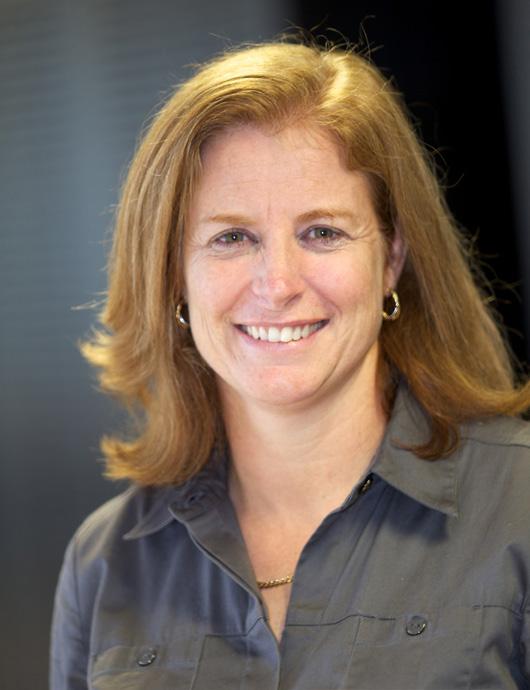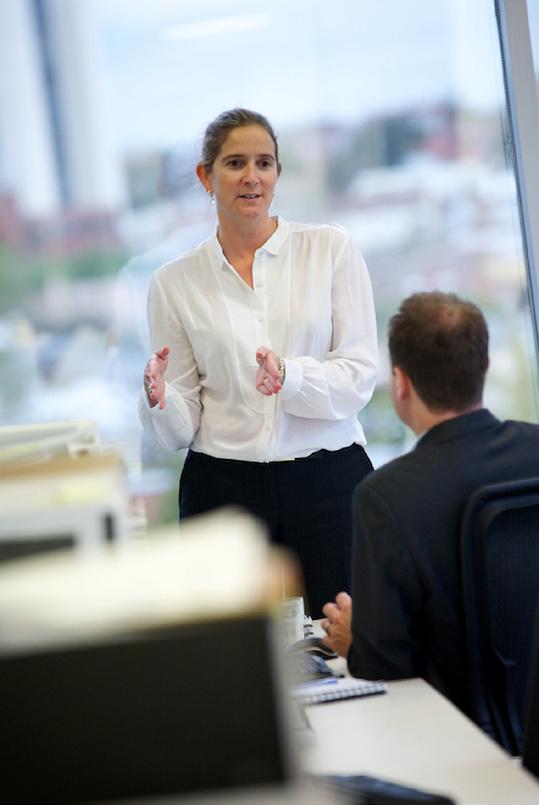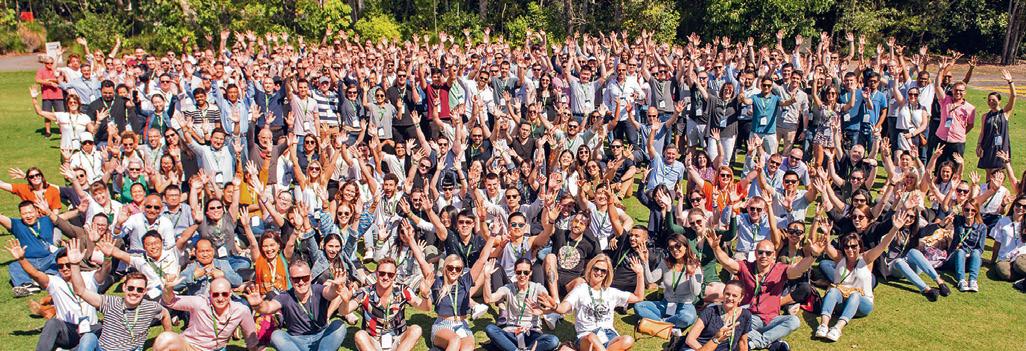
7 minute read
with Allison Smith and Fiona Tellefson, APP Corporation
AN INDUSTRY OPENING ITS ARMS TO WOMEN
Executive Managers, Urban Development and Project Management, APP Corporation & NAWIC Members
While construction continues to be a male-dominated industry, there are pockets where gender is less of a concern for women considering a career in this field. Meet Allison Smith and Fiona Tellefson, Executive Managers with property and infrastructure consultancy APP Corporation. Allison and Fiona lead different areas within the APP business. Allison is the Executive Manager for Urban Development whilst Fiona is the Executive Manager for Project Management. Both oversee teams nationally and have been in the property industry for over 25 years. They’ve seen the industry evolve over time and share their observations with NAWIC.
We started by asking Allison and Fiona about their career journeys A: At 18, I spent a year dabbling as an assistant town planner and taking a sports scholarship in tennis. I ultimately decided that town planning was my first love and moved into the private sector at age 25 to work on land development and planning consulting. Years later I transitioned into a Project Management/Development Management career, when I joined APP. They were a project management company when I joined. We won the Edmondson Park project, which was a master planned community. APP’s urban business grew from there and I helped to grow and diversify this division. I’ve also had the privilege of being part of APP’s executive team since 2015, steering the national business. F: I graduated as a civil engineer in the early 90s, which back then wasn’t specialised like it is today. There were very few women studying engineering then. My first role was with design consultants Irwin Consult, now WSP, as a structural engineer. Over time I made the move into
Allison Smith

Fiona Tellefson in APP’s Melbourne office in 2010
project management because I wanted to be involved in the project lifecycle, rather than purely the structural elements. I joined APP in 2003 and have had the opportunity to lead projects, manage regions and more recently have managed the national project management division and the broader business.
What inspired you to pursue a career in the construction industry? A: I always had a love of geography. My older sister, working in local government, would regularly come home and share how she was building communities and cities. That was it! To this day, planning projects continues to excite me. F: I enjoyed maths and science subjects at school, now referred to as STEM. I was intrigued by how buildings were built and wanted to pursue that. Were you faced with any barriers when you started your career? A: On the contrary, in the early years working in local government and the private sector, I found equal opportunity. Moving into project management, I found it very much a man’s world. I was different to traditional project managers because of my background and the construction industry was a very ‘hard’ place. All the administration jobs were held by women, but there were women in professional services and particularly in environmental, engineering and planning services. Fortunately, I had a very supportive manager. F: Going straight into a design office consultancy, it wasn’t so much of a concern for me. There was a senior female in the business at the time and management were good. I didn’t find it blokey because primarily I dealt with architects and they were used to dealing with women. I did find though that when I went onsite into site sheds, there’d be lots of inappropriate things on the walls. What have been the main challenges you have faced and how did you overcome them? A: In the beginning there were occasions where a client would treat me differently. That is, the client prefered authority coming from a man rather than a woman. In response to this, I learned to manipulate the teams and their gender base. Women communicate differently, at a different emotional level, and we look at things differently. These days diverse thinking is encouraged, but back in the day, not so much. F: The key challenge I faced initially was not because I was a female, but because I was young, ambitious and career-focussed. My time frame was different to those around me and I was often told: “You need more experience.” Many women face the challenge of balancing a career with parenting. I don’t have kids so haven’t had to juggle competing priorities. Having a national role requires a lot of travel and I’ve always been supported in this way. I also see how difficult it can be for women combining kids and career to build their industry network. Networks are important for industry engagement and building relationships that create referrals for work can assist greatly with the ability to perform and then win the repeat business. What have been the main highlights of your career to date? A: Having seen some of the people that have worked for me go on to succeed in their careers, has been a real highlight. To think I can have an influence on others, to give them work they will love, is satisfying. F: I am proud of the variety of roles I’ve had. Coming to Sydney and joining APP, moving to Victoria to grow the office from 10 to 40 people, and then moving into a national role.
My involvement in some of APP’s signature projects such as the Australian Grand Prix and Building the Education Revolution are highlights, together with facilitating career progression into senior roles for many APP employees. What are the most significant changes you have seen over the past 25 years for women working in the industry? A: Far more women in leadership. Back in the day, there weren’t any women in charge of state or local government, let alone in diverse roles. That said, it still feels odd today to go into a room with an all-female project team, whereas it’s not unusual to see an allmale team. F: All the improvements in the roles available to women: onsite, in trades, in leadership roles and directors of firms. People can aspire to roles, irrespective of gender. What do you see as the benefits for women of a career in the industry in 2021? A: The industry is opening its arms to women and working hard for gender equality, with bad behaviour being called out. Women bring diverse thinking to the table and increasing flexibility is allowing this to occur. F: For everyone, flexibility in working arrangements has greatly improved. Our ability to work on projects interstate, without having to do as much travel, means increased opportunities. There are also more female role models and ambassadors across the industry, which is very positive. What is one piece of advice you would give to other women who are considering a career in the industry? A: Don’t be silent on your needs to be met. If you need to leave early to pick up the kids, be open because it’s acceptable. It’s all about balance; you need to be accessible and smart employers understand this. F: Do what you enjoy doing. Just because it’s been a male environment, don’t let this put you off if you have a genuine interest in the industry. Build your network and build good industry connections. There are a lot of people out there willing to assist you in succeeding. Fast forward 25 years, what do you wish for women working in the industry? A: That the feeling of inferiority and the imposter syndrome has gone altogether. F: That we are talking about people in the industry, not ‘women.’ Also, I hope for more women in leadership generally and particularly in this industry.
app.com.au

Congratulations NAWIC on 25 Years!
Diversity in the workplace is integral to organisational success. It’s all about bringing the best minds together, sharing ideas and collaborating to create positive outcomes for our clients and people.
APP has been a proud member of NAWIC since 2010. Like NAWIC, we understand the value of having unique qualities, experiences and perspectives around the table. Over the past 30 years women have consistently made up only 2% of trade and semi-skilled workers in construction. There’s so much more to be done! To all the amazing NAWIC members who make it happen, thank you for advocating positive change for women in our industry. We applaud your achievements and you have our ongoing support.









